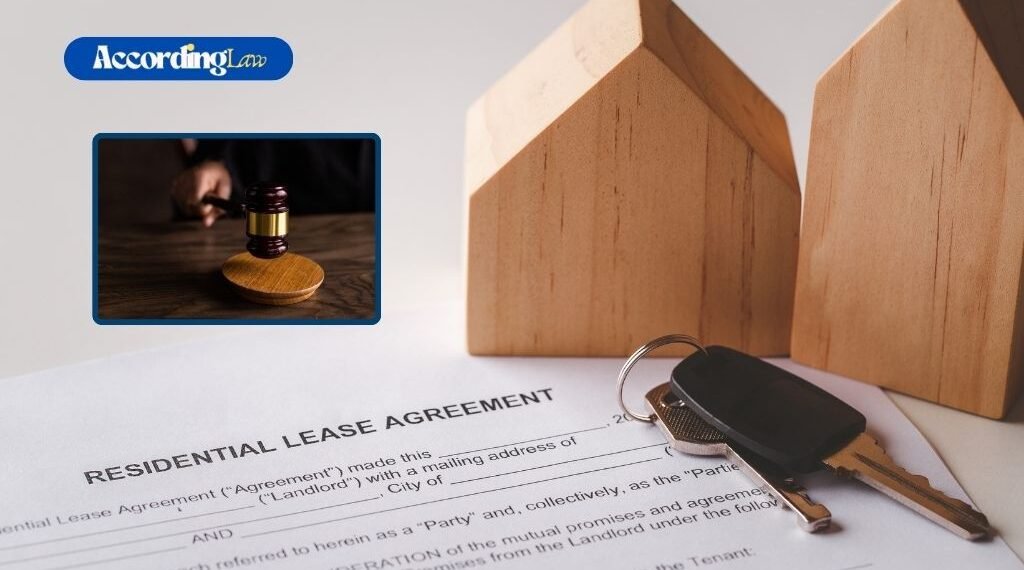Life in New York moves fast, and sometimes so do tenants. Whether it’s a new job, family needs, or unexpected financial challenges, many renters find themselves needing to move before their lease officially ends. Breaking a lease can feel overwhelming, especially in a city known for its complex rental market and strong tenant-landlord laws. But the truth is, tenants have legal options and practical strategies that can make the process smoother and less stressful. This guide will walk you through what you need to know about breaking a lease in New York, including your rights, responsibilities, and ways to protect your finances.
Table of Contents
Understanding What a Lease in New York Means
A lease is a legally binding contract between you and your landlord. By signing a lease, you agree to pay rent for a set period. That is usually one year. In return, you gain the right to live in the property. The landlord, on their side, agrees to maintain the space and respect your rights as a tenant. Breaking a lease early usually means you are not fulfilling your part of the agreement. That can lead to financial penalties. However, New York law offers tenants certain protections. In some cases, these protections can reduce or even eliminate those penalties.
Common Reasons Tenants Break Leases in New York
Tenants in New York move for all sorts of reasons, some planned and some unexpected. A sudden job transfer to another state, changes in income, or the need to move closer to family are common motivators. Sometimes, renters find their living situation unsafe due to neglected repairs, or they may face health concerns that require relocation. Whatever the reason, knowing why you need to leave helps you figure out which legal options may apply in your situation.
The Legal Grounds for Breaking a Lease Without Penalty
In some cases, tenants are legally justified in breaking a lease without facing financial consequences. If your landlord has failed to keep the apartment habitable, such as ignoring heat issues in winter, allowing pest infestations, or not repairing dangerous conditions, you may have the right to move out. Victims of domestic violence in New York also have special protections that allow them to terminate a lease early.
Additionally, if you are called to active military duty, federal law permits you to break your lease without penalty.
Financial Strategies to Limit Your Losses
If you can’t break your lease without a penalty, there are still steps you can take to lessen the burden. One option is to help your landlord by covering advertising expenses or assisting with showings so the unit is filled faster.
Timing your move can also make a difference, as apartments in Manhattan usually rent out more quickly during late spring and summer. For those staying in the city, it’s worth looking into downsizing or choosing neighborhoods that offer more affordable rent in Manhattan, as well as exploring housing programs and grants designed to support renters. These strategies can ease the financial impact and make transitioning to a new place more manageable.
The Duty to Mitigate Damages
One of the most tenant-friendly aspects of New York law is the landlord’s duty to mitigate damages. That means that if you move out early, your landlord must make a reasonable effort to re-rent the apartment rather than simply charging you for the remaining months of your lease. If a new tenant moves in quickly, you may only be responsible for rent up until that point. This protection gives tenants more flexibility and can help minimize financial losses when breaking a lease.
Negotiating With Your Landlord
Often, the best way to handle breaking a lease is through open communication with your landlord. Many landlords would rather work with tenants to find a solution than deal with drawn-out legal disputes or vacant apartments. Offering to help find a new tenant, being upfront about your timeline, and demonstrating good faith can go a long way. Some landlords may even agree to a lease buyout, where you pay a flat fee to terminate the agreement early.
Subletting and Lease Assignment Options
New York law gives tenants the right to request a sublet or lease assignment. Landlords have the right to approve or deny these requests under reasonable circumstances. Subletting allows you to find someone who will live in the apartment and pay rent for the remainder of your lease. Your name, however, stays on the lease. A lease assignment is different because it transfers the lease entirely to a new tenant. Both options can protect you from paying for an apartment you no longer live in. It’s important to follow the proper legal process and obtain written approval from your landlord.
Documenting Everything Before You Leave
If you decide to break your lease, it’s crucial to keep records of all communications with your landlord. Save emails, letters, and text messages that detail your request to leave, the landlord’s responses, and any agreements made. Take photos of the apartment’s condition when you move out to protect yourself against unfair claims about damage. Proper documentation ensures you have evidence in case of disputes over security deposits or rent obligations.
How Security Deposits Are Handled
Security deposits can become a major point of contention when breaking a lease. In New York, landlords must return your security deposit within a reasonable time after you move out, minus any deductions for legitimate damages. However, they cannot withhold it simply because you broke the lease. If your landlord refuses to return your deposit unfairly, you may have grounds to take legal action in small claims court.
The Role of Legal Assistance
Sometimes disputes over breaking a lease escalate, and having professional legal advice becomes essential. Tenant advocacy groups in New York provide resources and even free legal services to renters who are unsure of their rights. Consulting with an attorney can help you understand your position, especially if your landlord is threatening legal action or refusing to comply with the law.
Preparing for Future Leases
Once you’ve successfully navigated the process of breaking your lease, it’s helpful to keep lessons learned in mind for the future. Before signing a new lease, carefully review the early termination clauses and consider whether flexibility is important to you. Some landlords may offer shorter-term leases or month-to-month agreements, which provide more freedom if your situation changes unexpectedly.
Leaving the Apartment Without Financial or Legal Stress
Breaking a lease in New York doesn’t have to be a nightmare. While it may seem intimidating at first, tenants have legal protections and practical options that can make the process manageable. Whether you rely on your landlord’s duty to mitigate damages, request a sublet, or negotiate a buyout, you can leave your apartment without unnecessary financial or legal stress. With clear communication, careful documentation, and a good understanding of your rights, you can move forward confidently and focus on your next chapter.


